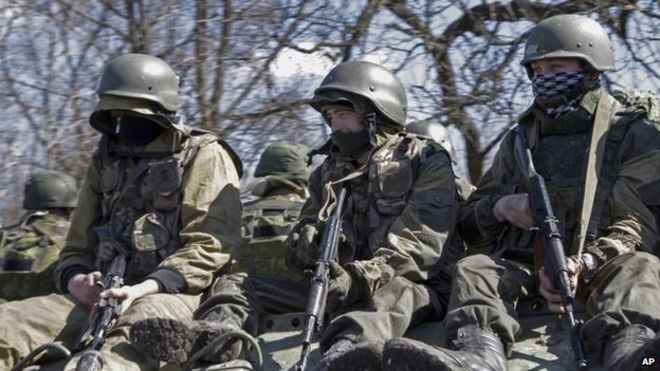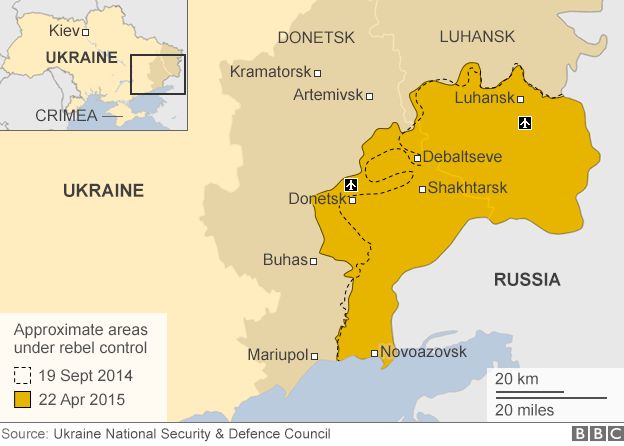Basayev and al-Khattab imported fighters from the Saudi fanatical Wahhabite strain of Sunni Islam into Chechnya. Ibn al-Khattab commanded what were called the “Arab Mujahideen in Chechnya,” his own private army of Arabs, Turks, and other foreign fighters. He was also commissioned to set up paramilitary training camps in the Caucasus Mountains of Chechnya that trained Chechens and Muslims from the North Caucasian Russian republics and from Central Asia.
The Saudi and CIA-financed Islamic International Brigade was responsible not only for terror in Chechnya. They carried out the October 2002 Moscow Dubrovka Theatre hostage seizure and the gruesome September 2004 Beslan school massacre. In 2010, the UN Security Council published the following report on al-Khattab and Basayev’s International Islamic Brigade:
Islamic International Brigade (IIB) was listed on 4 March 2003. . . as being associated with Al-Qaida, Usama bin Laden or the Taliban for “participating in the financing, planning, facilitating, preparing or perpetrating of acts or activities by, in conjunction with, under the name of, on behalf or in support of” Al-Qaida. . . The Islamic International Brigade (IIB) was founded and led by Shamil Salmanovich Basayev (deceased) and is linked to the Riyadus-Salikhin Reconnaissance and Sabotage Battalion of Chechen Martyrs (RSRSBCM). . . and the Special Purpose Islamic Regiment (SPIR). . .
On the evening of 23 October 2002, members of IIB, RSRSBCM and SPIR operated jointly to seize over 800 hostages at Moscow’s Podshipnikov Zavod (Dubrovka) Theater.
In October 1999, emissaries of Basayev and Al-Khattab traveled to Usama bin Laden’s home base in the Afghan province of Kandahar, where Bin Laden agreed to provide substantial military assistance and financial aid, including by making arrangements to send to Chechnya several hundred fighters to fight against Russian troops and perpetrate acts of terrorism. Later that year, Bin Laden sent substantial amounts of money to Basayev, Movsar Barayev (leader of SPIR) and Al-Khattab, which was to be used exclusively for training gunmen, recruiting mercenaries and buying ammunition.
The Afghan-Caucasus Al Qaeda “terrorist railway,” financed by Saudi intelligence, had two goals. One was a Saudi goal to spread fanatical Wahhabite Jihad into the Central Asian region of the former Soviet Union. The second was the CIA’s agenda of destabilizing a then-collapsing post-Soviet Russian Federation.
Beslan
On September 1, 2004, armed terrorists from Basayev and al-Khattab’s IIB took more than 1,100 people as hostages in a siege that included 777 children, and forced them into School Number One (SNO) in Beslan in North Ossetia, the autonomous republic in the North Caucasus of the Russian Federation near to the Georgia border.
On the third day of the hostage crisis, as explosions were heard inside the school, FSB and other elite Russian troops stormed the building. In the end, at least 334 hostages were killed, including 186 children, with a significant number of people injured and reported missing. It became clear afterward that the Russian forces had handled the intervention poorly.
The Washington propaganda machine, from Radio Free Europe to The New York Times and CNN, wasted no time demonizing Putin and Russia for their bad handling of the Beslan crisis rather than focus on the links of Basayev to Al Qaeda and Saudi intelligence. That would have brought the world’s attention to the intimate relations between the family of then US President George W. Bush and the Saudi billionaire bin Laden family.
On September 1, 2001, just ten days before the day of the World Trade Center and Pentagon attacks, Saudi Intelligence head US-educated Prince Turki bin Faisal Al Saud, who had directed Saudi Intelligence since 1977, including through the entire Osama bin Laden Mujahideen operation in Afghanistan and into the Caucasus, abruptly and inexplicably resigned, just days after having accepted a new term as intelligence head from his King. He gave no explanation. He was quickly reposted to London, away from Washington.
The record of the bin Laden-Bush family intimate ties was buried, in fact entirely deleted on “national security” (sic!) grounds in the official US Commission Report on 911. The Saudi background of fourteen of the nineteen alleged 911 terrorists in New York and Washington was also deleted from the US Government’s final 911 Commission report, released only in July 2004 by the Bush Administration, almost three years after the events.
Basayev claimed credit for having sent the terrorists to Beslan. His demands had included the complete independence of Chechnya from Russia, something that would have given Washington and the Pentagon an enormous strategic dagger in the southern underbelly of the Russian Federation.
By late 2004, in the aftermath of the tragic Beslan drama, President Vladimir Putin reportedly ordered a secret search and destroy mission by Russian intelligence to hunt and kill key leaders of the Caucasus Mujahideen of Basayev. Al-Khattab had been killed in 2002. The Russian security forces soon discovered that most of the Chechen Afghan Arab terrorists had fled. They had gotten safe haven in Turkey, a NATO member; in Azerbaijan, by then almost a NATO Member; or in Germany, a NATO Member; or in Dubai–one of the closest US Allies in the Arab States, and Qatar-another very close US ally. In other words, the Chechen terrorists were given NATO safe haven.
F. William Engdahl is strategic risk consultant and lecturer, he holds a degree in politics from Princeton University and is a best-selling author on oil and geopolitics, exclusively for the online magazine “New Eastern Outlook”.
First appeared: http://journal-neo.org/2015/05/15/what-if-putin-is-telling-the-truth/
The Saudi and CIA-financed Islamic International Brigade was responsible not only for terror in Chechnya. They carried out the October 2002 Moscow Dubrovka Theatre hostage seizure and the gruesome September 2004 Beslan school massacre. In 2010, the UN Security Council published the following report on al-Khattab and Basayev’s International Islamic Brigade:
Islamic International Brigade (IIB) was listed on 4 March 2003. . . as being associated with Al-Qaida, Usama bin Laden or the Taliban for “participating in the financing, planning, facilitating, preparing or perpetrating of acts or activities by, in conjunction with, under the name of, on behalf or in support of” Al-Qaida. . . The Islamic International Brigade (IIB) was founded and led by Shamil Salmanovich Basayev (deceased) and is linked to the Riyadus-Salikhin Reconnaissance and Sabotage Battalion of Chechen Martyrs (RSRSBCM). . . and the Special Purpose Islamic Regiment (SPIR). . .
On the evening of 23 October 2002, members of IIB, RSRSBCM and SPIR operated jointly to seize over 800 hostages at Moscow’s Podshipnikov Zavod (Dubrovka) Theater.
In October 1999, emissaries of Basayev and Al-Khattab traveled to Usama bin Laden’s home base in the Afghan province of Kandahar, where Bin Laden agreed to provide substantial military assistance and financial aid, including by making arrangements to send to Chechnya several hundred fighters to fight against Russian troops and perpetrate acts of terrorism. Later that year, Bin Laden sent substantial amounts of money to Basayev, Movsar Barayev (leader of SPIR) and Al-Khattab, which was to be used exclusively for training gunmen, recruiting mercenaries and buying ammunition.
The Afghan-Caucasus Al Qaeda “terrorist railway,” financed by Saudi intelligence, had two goals. One was a Saudi goal to spread fanatical Wahhabite Jihad into the Central Asian region of the former Soviet Union. The second was the CIA’s agenda of destabilizing a then-collapsing post-Soviet Russian Federation.
Beslan
On September 1, 2004, armed terrorists from Basayev and al-Khattab’s IIB took more than 1,100 people as hostages in a siege that included 777 children, and forced them into School Number One (SNO) in Beslan in North Ossetia, the autonomous republic in the North Caucasus of the Russian Federation near to the Georgia border.
On the third day of the hostage crisis, as explosions were heard inside the school, FSB and other elite Russian troops stormed the building. In the end, at least 334 hostages were killed, including 186 children, with a significant number of people injured and reported missing. It became clear afterward that the Russian forces had handled the intervention poorly.
The Washington propaganda machine, from Radio Free Europe to The New York Times and CNN, wasted no time demonizing Putin and Russia for their bad handling of the Beslan crisis rather than focus on the links of Basayev to Al Qaeda and Saudi intelligence. That would have brought the world’s attention to the intimate relations between the family of then US President George W. Bush and the Saudi billionaire bin Laden family.
On September 1, 2001, just ten days before the day of the World Trade Center and Pentagon attacks, Saudi Intelligence head US-educated Prince Turki bin Faisal Al Saud, who had directed Saudi Intelligence since 1977, including through the entire Osama bin Laden Mujahideen operation in Afghanistan and into the Caucasus, abruptly and inexplicably resigned, just days after having accepted a new term as intelligence head from his King. He gave no explanation. He was quickly reposted to London, away from Washington.
The record of the bin Laden-Bush family intimate ties was buried, in fact entirely deleted on “national security” (sic!) grounds in the official US Commission Report on 911. The Saudi background of fourteen of the nineteen alleged 911 terrorists in New York and Washington was also deleted from the US Government’s final 911 Commission report, released only in July 2004 by the Bush Administration, almost three years after the events.
Basayev claimed credit for having sent the terrorists to Beslan. His demands had included the complete independence of Chechnya from Russia, something that would have given Washington and the Pentagon an enormous strategic dagger in the southern underbelly of the Russian Federation.
By late 2004, in the aftermath of the tragic Beslan drama, President Vladimir Putin reportedly ordered a secret search and destroy mission by Russian intelligence to hunt and kill key leaders of the Caucasus Mujahideen of Basayev. Al-Khattab had been killed in 2002. The Russian security forces soon discovered that most of the Chechen Afghan Arab terrorists had fled. They had gotten safe haven in Turkey, a NATO member; in Azerbaijan, by then almost a NATO Member; or in Germany, a NATO Member; or in Dubai–one of the closest US Allies in the Arab States, and Qatar-another very close US ally. In other words, the Chechen terrorists were given NATO safe haven.
F. William Engdahl is strategic risk consultant and lecturer, he holds a degree in politics from Princeton University and is a best-selling author on oil and geopolitics, exclusively for the online magazine “New Eastern Outlook”.
First appeared: http://journal-neo.org/2015/05/15/what-if-putin-is-telling-the-truth/


 He ain't gon stop.
He ain't gon stop. 







